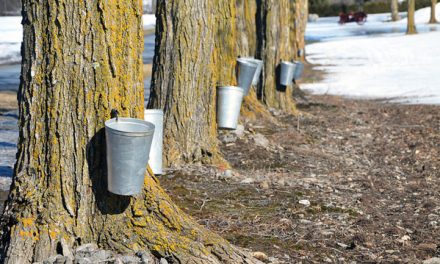by Kalynn Sawyer Helmer
AgriNews Staff Writer
ONTARIO – Effective July 1, the Ontario regulations around rabies immunization requirements for animals are changing. The Ontario Ministry of Health and Long-Term Care released a FAQ document about the changes, it states: “Changes to rabies immunization requirements for animals in Ontario were required in order to ensure consistent implementation of public health rabies prevention and control measures across the province to align with the modernization of the Ontario Public Health Standards.”
While rabies immunization has been required for dogs, cats and some livestock in Ontario since 1986, the new regulations aim to make the regulations consistent across health units. For producers this means a few new rules for livestock classes which may have only applied in certain health units before.
The regulations outline that the “persons responsible for the care or control” of livestock like horse, cattle or sheep are responsible for the vaccinations. This includes owners and their immediate family, handlers, drivers, riders, sheep shearer and veterinary staff amongst others.
The new regulations will require livestock be vaccinated before attending settings where the public is meant to interact with the animals such as fairs. The document explains: “Examples of settings that fit into this category include petting zoos; corporate birthday parties, and other ‘animal experience’ events; and interactive animal exhibits where members of the public are intended to handle or pet the animals. Therapy animals, service animals and riding school horses would also fall under the scope of the immunization requirements.”
For 4-H shows, clubs and clinics, the animals are not subject to the requirements unless the animals will come into contact with the general public. “Reasonable measures (e.g. signage, physical barriers, etc.) should be used to prevent persons not authorized to handle or interact with animals at fairs, clinics and shows from accessing animals in holding or stabling areas,” says the FAQ.
The problem that one owner pointed out was that the general public may possibly become more segregated from agriculture if signs warning of potential rabies are littered around the animals at events.
For the owners who do get the vaccines, costs can become too high to bother with the shows. For sheep shearer Ross Creighton, the vaccines will cost about $20 per sheep. Creighton attends a number of events over the summer including the Canada Museum of Agriculture and Food’s sheep shearing festival. At the four-day event, Creighton shears one of his sheep almost every half hour. While he intends to continue despite the new rules for now, there is no offset to the vaccine costs, which he said is discouraging.
Creighton gets $5 per sheep he shears yet with the $20 vaccine some demonstrators may not find the expense worth it. “It’s going to discourage anybody from going to such a thing,” Creighton said. He wondered what would happen to urban education of agriculture if demonstrators can no longer afford to attend the events.
Once the new regulations are in place on July 1, the FAQ explains that the requirements will be enforced by “health units conducting investigations after an animal bite to a human has been reported to public health. However some municipalities and health units may choose to take a more proactive approach in settings such as petting zoos or interactive animal exhibits. Only designated individuals under the Provincial Offences Act, such as public health inspectors or municipal by-law officers, can enforce provincial regulations.”
Owners gearing up for summer shows and events can consult the Ontario government website at https://www.ontario.ca/laws/regulation/900567.












